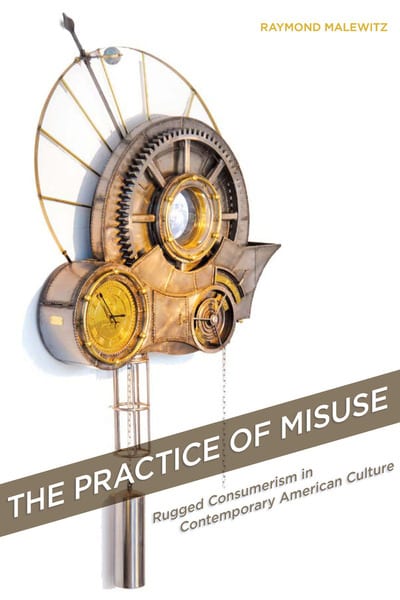The Practice of Misuse: Rugged Consumerism in Contemporary American Culture.
By Raymond Malewitz. Stanford University Press: Redwood City, CA, 2014. 
In the age of Ikea Hackers and salvagepunks, The Practice of Misuse: Rugged Consumerism in Contemporary American Culture charts the emergence of “rugged consumers” who creatively misuse, reuse, and repurpose the objects within their environments to suit their idiosyncratic needs and desires. Figures of both literary and material culture whose behavior evokes an American can-do ethic, rugged consumers mediate between older mythic models of self-sufficiency and the consumption-driven realities of our passive, post-industrial economy. Through their unorthodox encounters with the material world, rugged consumers show that using objects ‘properly’ is a conventional behavior that must be renewed and reinforced rather than a naturalized process that persists untroubled through time and space.
At the same time, this Utopian ideal is rarely met: most examples of rugged consumerism conceal rather than foreground the ideological problems to which they respond and thus support or ignore rather than challenge the structures of late capitalist consumerism. By analyzing convergences and divergences between subjective material practices and collectivist politics, Raymond Malewitz shows how rugged consumerism both recodes and reflects the dynamic social history of objects in the United States from the 1960s to the present.
Raymond Malewitz is Assistant Professor of English at the School of Writing, Literature, and Film at Oregon State University.
